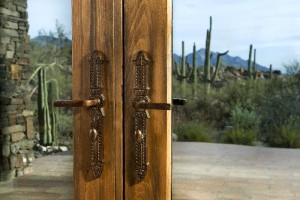
Right now, we will give you a better look at some particular door devices; door closers and self-closing hinges.
It’s easy to think that doors are simple. After all, you open them, and you walk through them, then you close them again. Depending on the purpose of the door, you might only need to lean inside for a few minutes and then shut them until the next time you have a reason to use it. This, in essence, is the difference between a fridge door and the door to your linen closet! Right now, we will give you a better look at some particular door devices; door closers and self-closing hinges.
Focusing on Safety and Accessibility
As with many other types of doors and door hardware, door devices are designed to focus on life safety and universal accessibility for all of their users. Self-closing hinges pull themselves shut without user input. There’s also a negligible amount of latching speed and little to no adjustments involved. Many different sizes, types, and features exist; in any case, you must comply with local building codes – even for your home. After all, you must follow various regulations regarding opening forces and closing speeds.
Door Closers
Most of the time, residential doors are opened and closed by user interaction and simple physics involving momentum. The conditions of such integral hardware like hinges, strike plates, and locks also affect how quickly the door closes and how firmly the seal remains. More often than not, you will see this technology used in commercial buildings. Look more closely at fire doors, storeroom doors, security doors, and even janitorial supply closets. These doors rely on adjustment valves – and we recognize how unfamiliar that term might be. Four types of valves ensure the smooth functionality of door closers. Some examples include backcheck, closing speed, latching speed, and delayed action. One potential reason to choose door closers over their counterparts is that door closers are more affordable.
Self-Closing Hinges
Now then, let’s have a closer look at self-closing doors. That means an examination of self-closing hinges. These nifty hinges help a door close once it has been opened and whoever opened it lets go. It decreases the need to close the door by hand and, considering the situation we’re all in, can help to reduce unnecessary touchpoints as well. Although you might think that these hinges are a good fit for any door, they are best suited to smaller doors. Likewise, you should consider installing them on mechanical doors used as fire shields for roofs and basements. They can also be used as doors for attics and garages when utilized in a residential setting instead.
Choose Your Home Hardware From WalterWorks
No matter what type of home hardware and decorative touches you choose, WalterWorks Hardware has the expertise and supplies you need. Throughout Maryland, Washington, D.C., and the northern Virginia area, residents love us for our fantastic hardware and unbeatable knowledge. For more information, please call us at (410) 263-9711 or contact us online. For more tips on choosing hardware for your home, follow us on Facebook, Twitter, LinkedIn, Houzz, and Pinterest.
